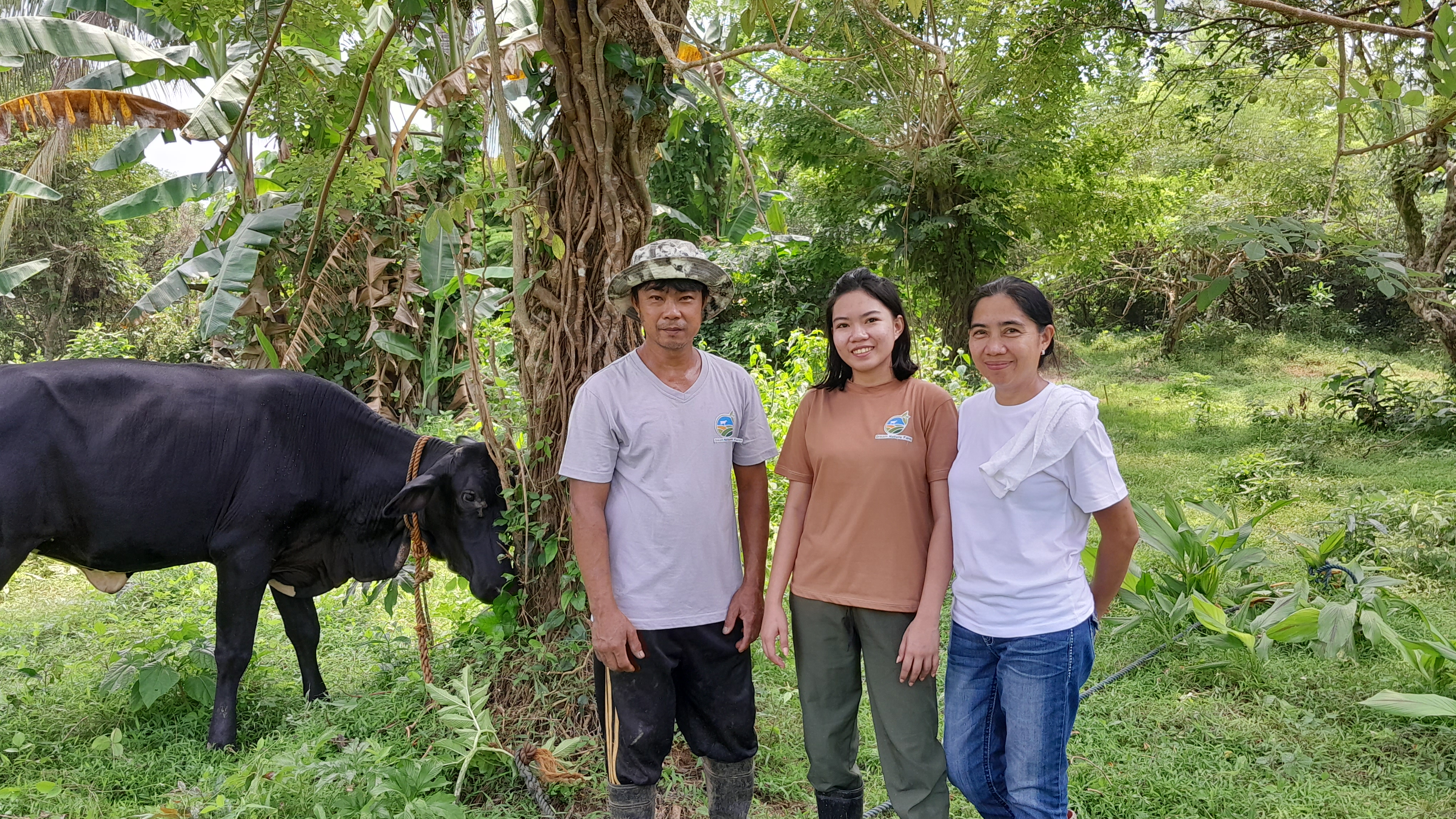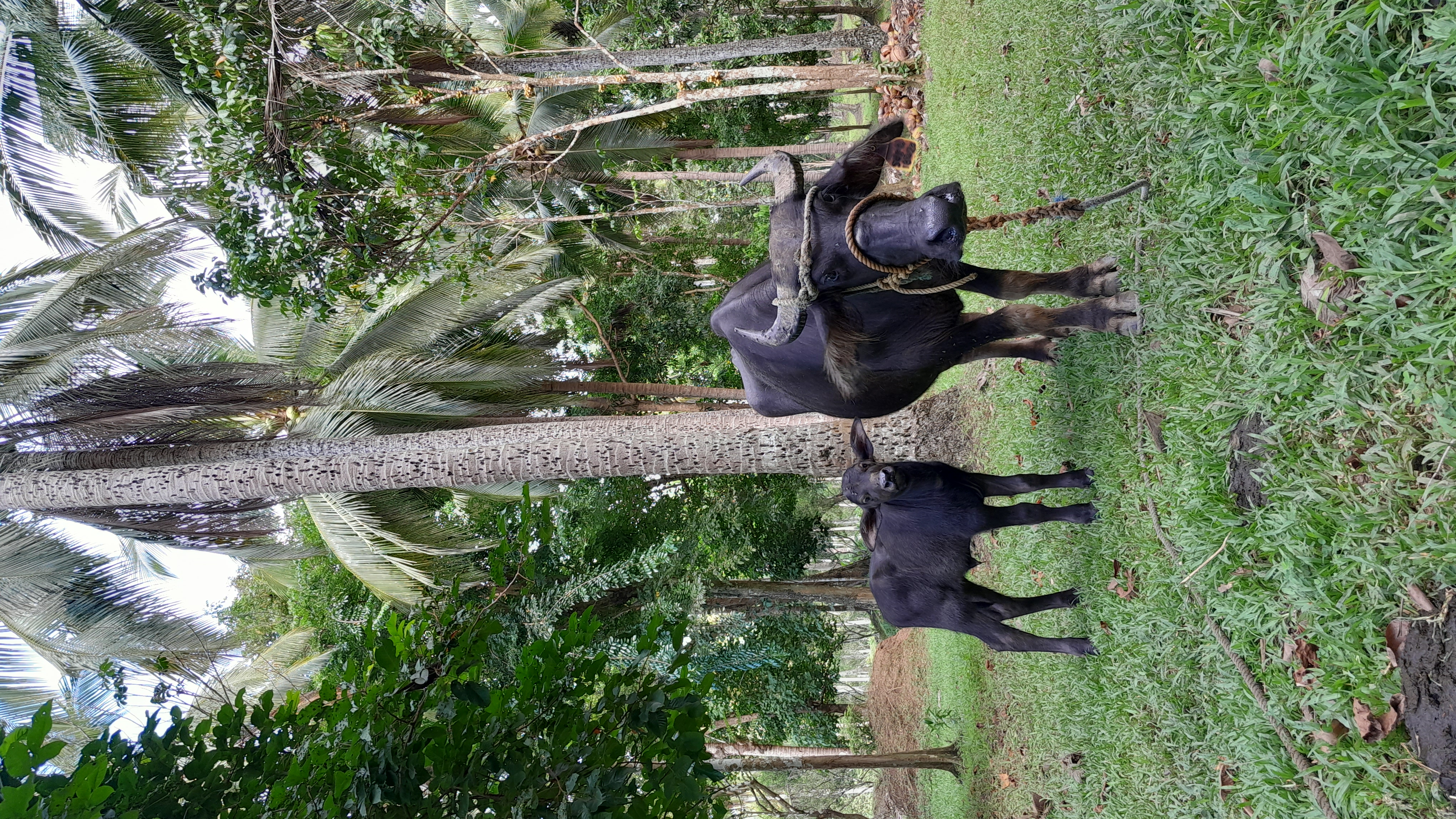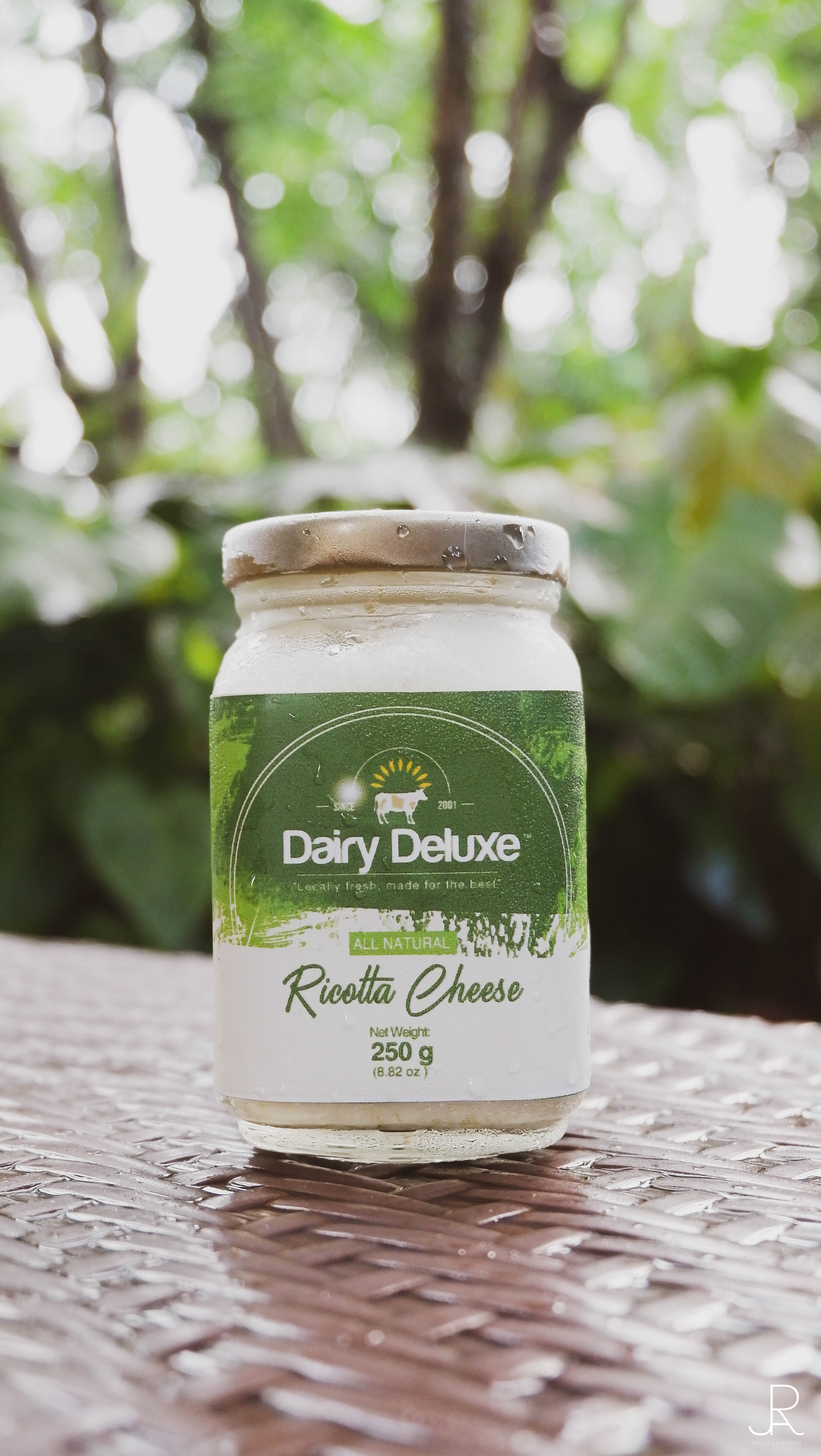Redirecting foCows: After failing in different businesses, Laguna couple finally finds success in dairy farming
By BENJAMIN SARONDO
It was Rosel Buban's dream to establish a zoo that shelters farm animals and grows fruit-bearing trees, but some things are not meant to happen even if they are perfectly envisioned. But quitting was never an option for Buban; instead, she redirected her steps toward what she was passionate about, the availability of resources and gaining more profit.
Together with her husband, Salvador Daryl Buban, they now manage Dream Nature Farm in Pagsanjan, Laguna, where they raise cows and carabaos that produce raw milk and dairy products.

Currently, they have 20 heads of cows and carabaos, where most of the cows are Holsteins, which is a good breed for milk production, and the carabaos are Bulgarian, Italian, and Philippine buffalo, though they are aiming for other breeds.
Dream farm came true
The farm land where they raise their cows and carabaos is 3.5-hectares inherited from the parents of Salvador Daryl, and his family has practiced dairy farming since he was in elementary school.
“We have decided to turn their farmland into a zoo, but they will focus on sheltering and raising farm animals. It was my first idea because I saw that my child and her classmates were interested in animals and enjoyed playing on the farm,” Rosel said in Tagalog.
When her husband was working abroad, they first ventured into pig farming as well as planting fruit-bearing trees such as lanzones, lychee, cottonfruit, guyabano, banana, and many more. “Every time that we have visitors, I say that our farm should have something new to offer,” Rosel said. They also cultivated a part of their property to establish a fish pond.
And when they decided to focus on their farm, Salvador Daryl stayed in the Philippines. “Unfortunately, when we officially turned it into a business and a source of livelihood, it did not work well due to the consequences of entering a business without enough knowledge of managing it,” Rosel said. “We do everything we could offer on our farm; we have an established building for swine production; we also tried raising ducks and goats, but we barely made profits.”
Rosel said they took a step back to identify what caused their failure in the agribusiness industry despite having a lot to offer. Then, they decided to focus on dairy production since that is what they have practiced ever since on their farm.
Investing in knowledge and skills
Dedicated to pursuing dairy farming and marketing dairy products, Rosel and Salvador Daryl attended training sessions that developed their knowledge in the different aspects of business as well as taking care of their farm animals.
Rosel started with two cows and attended the Dairy Training and Research Institute for Dairy Products Manufacture. This training helped her develop dairy products from raw milk. She also enrolled in the Kapatid Agri Mentor Me Program (KAMMP) by the Department of Trade and Industry. “This training taught me how to start a business; as well as effective management, it also guided me in marketing and a lot more aspects,” Rosel stated.
In addition, Rosel completed the Training on Dairy Buffalo Production and Management conducted by the Department of Agriculture - Agricultural Training Institute. And currently, she has three National Certificate IIs from the Technical Education and Skills Development Authority in Agroentrepreneurship, Organic Agriculture Production, and Animal Production.
Farm duties
After acquiring sufficient knowledge to manage their dairy farm and market dairy products, Rosel and Salvador Daryl decided to put it into practice through natural farming.
“Our cows and carabaos were grassfed. My husband harvested them from our own farm, since we realized during our trainings that it is better to feed them healthy grass. That is our daily routine,” Rosel said.

The seeds they planted to grow grass were from the National Dairy Authority (NDA) and the Philippine Carabao Center (PCC). She added that animal manures were used as fertilizers to grow grasses.
Another way they get help from PCC is through the monitoring and checking of the health of their cows and carabaos. Rosel stated that cows were more sensitive compared to carabaos. “They do not get sick most of the time, but we need to feed them grass daily, and during the dry season we struggle since the supply of grass is low.”
Rosel said that what they do is plant more grass before the dry season and look for other sources of grass aside from their own farm. She admitted that they feed their cows and carabaos feed products, especially when the supply of grass is really low.
Another challenge they encounter in managing the farm is manpower. “There are a lot of business establishments and industries where people could apply, and some of the people in our area are not open to the agriculture industry,” she said.
Rosel focuses on the production of dairy products from daily raw milk. “My focus is to market the ricotta cheese, and I promote it in the One Town, Own Product (OTOP) Hub at the University of the Philippines Los Banos.” Dream Nature Farm also sells pasteurized fresh milk and chocolate milk. She also said that they have regular customers and attend trade fairs to market their products.

“Currently, the business is doing well, even if we only market fresh milk because of its high demand, good price, and daily income. For example, a single head produces up to six liters of milk, and we sell each liter for 80 pesos,” Rosel said. So if they have 20 heads that produce six liters of milk each day, their monthly income can exceed 250,000 pesos.
Not just a farm, but a learning site
Dream Nature Farm is now a learning site for agriculture at the Agricultural Training Institute and an approved farm school of the Technical Education and Skills Development Authority. “It is fulfilling that we have our products that serve as a source of our income, and we could train individuals on our own farm about dairy farming and dairy business.”
And by the start of the year 2024, Dream Nature Farm will be accepting trainees who aspire to work abroad in the field of dairy farming.
“We can share our struggles with our students to inspire them that failures cannot bring us down and that we can, no matter what, just not give up.”
Despite the failure experienced by Dream Nature Farm, Rosel shared that what keeps her going is her love of meeting and communicating with people. She said that farming can be very tiring, while outside the farm, to market their products, you have a different personality to show.
She also shared that “it is not enough if you have the capital and financial stability to start your business; you need to have knowledge to sustain it and succeed.” In her case, they invested the capital in a business with which they were not familiar, which led them to fail, which is why she highlighted the importance of knowledge in the field.
Photo courtesy of Dream Nature Farm